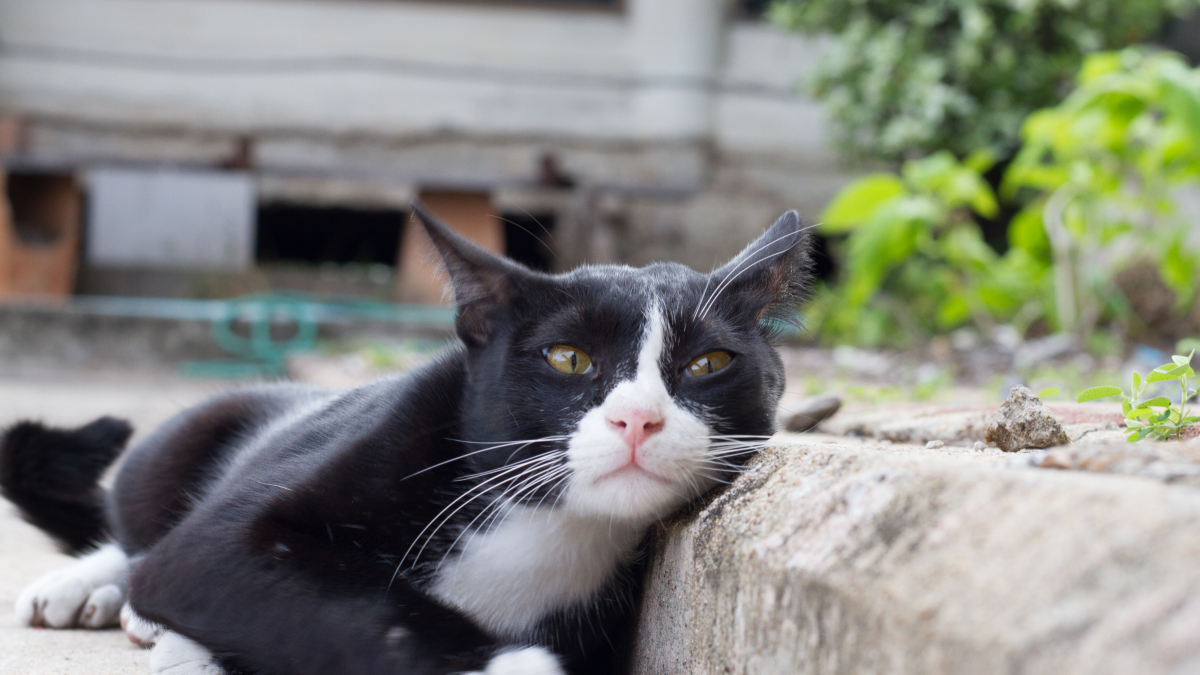Have you ever wondered if a male cat can live happily without mating? It’s a question many cat owners ask but few understand fully.
Your male cat’s behavior, health, and happiness might depend on this more than you think. You’ll discover what happens when a male cat doesn’t mate and why it matters for his well-being. Keep reading to learn how you can help your furry friend live a balanced and stress-free life, no matter his mating status.

Credit: www.reddit.com
Male Cat Reproductive Biology
The reproductive biology of male cats is designed to ensure species survival. Their bodies produce sperm continuously once they reach maturity. Unlike female cats, males do not have heat cycles. Instead, they are capable of mating year-round. This biological setup influences their behavior and physical condition.
Male cats’ reproductive organs include the testes, which produce sperm and testosterone. Testosterone plays a key role in their mating behavior and territorial instincts. Understanding these aspects helps explain how mating impacts a male cat’s life and health.
How Mating Affects Male Cats
Mating triggers physical and behavioral changes in male cats. Their bodies release hormones that boost energy and aggression. These changes help them compete for mates and establish dominance.
- Increased activity and restlessness
- Marking territory with scent
- Vocalizing loudly to attract females
- Engaging in fights with other males
Without mating, some behaviors may lessen but hormonal effects remain. The drive to reproduce stays strong due to natural instincts.
Hormonal Influences On Behavior
Testosterone controls many male cat behaviors. It affects their mood, energy, and aggression levels. High testosterone leads to:
- More frequent roaming
- Increased fighting risk
- Strong desire to find mates
Even without mating, testosterone continues to impact behavior. Neutering reduces hormone levels and calms the cat. This often lowers mating drive and aggressive actions.

Credit: www.reddit.com
Health Impacts Of Not Mating
Understanding the health impacts of not mating for a male cat is important if you want to provide the best care. Mating influences a cat’s physical and mental state in ways you might not expect. Ignoring these effects can lead to unexpected health and behavioral issues.
Physical Health Considerations
Male cats that do not mate often experience changes in hormone levels, especially testosterone. This can lead to weight gain and a slower metabolism. Without the outlet of mating, some cats develop urinary tract problems or prostate issues.
Neutering, which prevents mating, actually reduces the risk of certain diseases like testicular cancer. However, if your male cat is intact but not mating, watch for signs like frequent urination or discomfort, which could indicate health problems. Regular vet checkups are essential to catch these early.
Behavioral Changes Without Mating
Not mating can cause noticeable changes in your cat’s behavior. Some male cats become more aggressive or territorial, marking territory with urine more often. Others might become restless or show signs of frustration, pacing or vocalizing loudly at night.
On the other hand, some cats might withdraw and appear less social. These changes can affect your relationship with your pet and may require behavioral management. Have you noticed your cat acting differently when he doesn’t have a chance to mate?
Providing toys, interactive play, and mental stimulation can help reduce stress and behavioral problems linked to mating instincts. Understanding these impacts helps you support your cat’s health and happiness better.
Neutering And Its Effects
Neutering is a common surgical procedure that removes a male cat’s testicles. This stops sperm production and lowers hormone levels. Many cat owners wonder how neutering affects a male cat’s life, especially if he never mates. Neutering has clear effects on health and behavior. It helps control the cat population and can improve a cat’s quality of life.
Benefits Of Neutering Male Cats
- Prevents unwanted litters and reduces stray cat numbers.
- Lowers the risk of prostate problems and certain cancers.
- Reduces spraying and marking territory with strong odors.
- Decreases the chance of fights and injuries from other cats.
- Can lead to a longer, healthier life for the cat.
Behavioral Shifts After Neutering
Neutered male cats often become calmer and less aggressive. They tend to roam less and stay closer to home. The urge to seek mates fades, which lowers stress and anxiety. Some cats become more affectionate and enjoy human company more. Playfulness remains, but behaviors linked to mating usually reduce.

Credit: pethelpful.com
Psychological Well-being Without Mating
Male cats can live healthy lives without mating, but their psychological well-being depends on various factors. Understanding how mating impacts a male cat’s mental state helps you ensure your pet stays happy and calm. Let’s look closer at what happens inside their minds when mating isn’t part of their routine.
Stress And Anxiety Factors
Male cats that don’t mate may experience stress or anxiety, especially if they are intact (not neutered). The buildup of hormones like testosterone can make them restless or aggressive.
However, stress isn’t inevitable. Many male cats live peacefully without mating if their environment meets their needs. Providing plenty of playtime, mental stimulation, and a calm atmosphere helps reduce anxiety.
Have you noticed your male cat pacing or meowing loudly? These signs might mean he’s feeling frustrated. Redirecting his energy with interactive toys or puzzle feeders often calms him down effectively.
Social Interactions Among Male Cats
Male cats often form social hierarchies, especially when they live with other cats. Without mating as a focus, their social bonds and interactions can become the main outlet for their energy and emotions.
Some male cats enjoy companionship and play, while others prefer solitude. Observing your cat’s behavior helps you understand his social needs better.
Encourage positive interactions by introducing new cats slowly or providing separate spaces. This approach lowers tension and supports your cat’s emotional health.
Myths About Male Cats And Mating
Many people believe male cats must mate to be healthy or happy. These ideas come from old stories or misunderstandings about cat behavior. It is important to separate fact from fiction. Understanding the truth helps cat owners care better for their pets.
Common Misconceptions
- Male cats need to mate to avoid health problems.
- Unmated males become aggressive or unhappy.
- All male cats have strong urges to mate constantly.
- Neutering makes male cats weak or unhealthy.
- Mating is the only way for male cats to show natural behavior.
Scientific Findings Versus Beliefs
Studies show male cats can live without mating and stay healthy. Neutered male cats often live longer and have fewer diseases. Their behavior improves, with less fighting and marking. Mating is not essential for a male cat’s mental well-being.
Male cats express natural behaviors through play and exploration too. Aggression relates more to territorial instincts than lack of mating. A neutered cat can be just as happy as one that mates.
Caring For Male Cats Without Mating
Caring for male cats that live without mating involves more than just meeting their basic needs. These cats can lead healthy and happy lives if you pay attention to their physical and mental well-being. Let’s dive into how diet, exercise, and environmental enrichment play a crucial role in their care.
Diet And Exercise Needs
Your male cat’s diet is the foundation of his health. Without the natural outlet of mating, energy can build up, so a balanced diet tailored to his age, weight, and activity level helps maintain a healthy body. Think about feeding smaller, frequent meals to keep his metabolism steady and avoid obesity.
Exercise is just as important. Cats that don’t mate may become restless or bored, which can lead to destructive behavior. Try interactive toys, laser pointers, or even short play sessions multiple times a day to keep your cat active and engaged.
- Feed high-quality protein to support muscle health
- Limit treats to prevent weight gain
- Encourage play through scheduled activities
- Use climbing trees or scratching posts for physical activity
Environmental Enrichment
Without mating behaviors, your cat needs other ways to express natural instincts. Providing a stimulating environment can reduce stress and prevent boredom. Simple additions like window perches let your cat watch birds and outdoor activity, fulfilling his hunting curiosity safely.
Rotate toys regularly to keep your cat interested and avoid monotony. Puzzle feeders challenge his mind and slow down eating, which benefits digestion. Don’t forget quiet spaces where your cat can retreat and relax when he wants privacy.
- Offer varied toys such as feather wands and balls
- Set up cozy spots with blankets or cat beds
- Introduce puzzle feeders to engage his brain
- Provide vertical spaces for climbing and observing
Have you noticed how your male cat’s behavior changes when he’s bored? Adding these care strategies can make a big difference in his happiness and health, even without mating.
Frequently Asked Questions
Can Male Cats Live Healthily Without Mating?
Yes, male cats can live healthy lives without mating. Mating is not essential for their physical health. They may, however, show behavioral changes if not neutered.
Does Lack Of Mating Affect Male Cats’ Behavior?
Unmated male cats may become more territorial and aggressive. They might also roam more in search of mates. Neutering helps reduce these behaviors effectively.
Is Neutering Beneficial For Male Cats Without Mating?
Neutering male cats prevents unwanted litters and reduces roaming and aggression. It also lowers the risk of certain diseases and improves lifespan and behavior.
Will Male Cats Feel Lonely Without Mating Partners?
Male cats do not require mating partners for companionship. They thrive with human interaction and environmental enrichment. Socialization is more important than mating.
Conclusion
Male cats can live happily without mating. They adjust well to a non-mating life. Neutering helps reduce mating urges. This makes life easier for them and their owners. They focus more on play and relaxation. These cats often enjoy longer, healthier lives.
Stress and territorial fights decrease. Owners find them more affectionate and calm. Regular check-ups ensure they stay healthy. Understanding their needs creates a good life for them. Simple changes make a big difference. Happy cats mean happy homes.

Lily Purrington is the founder of MyKittyPicks.com, a cozy corner of the web dedicated to helping cat lovers discover the best cat products, furniture, toys, and home decor ideas.
A lifelong cat enthusiast, Lily shares trusted tips, honest product recommendations, and stylish inspiration designed to keep kitties happy and homes beautiful.
Her mission is simple: to bring together practical advice and purr-fect picks that make life better for cats and the people who love them.







